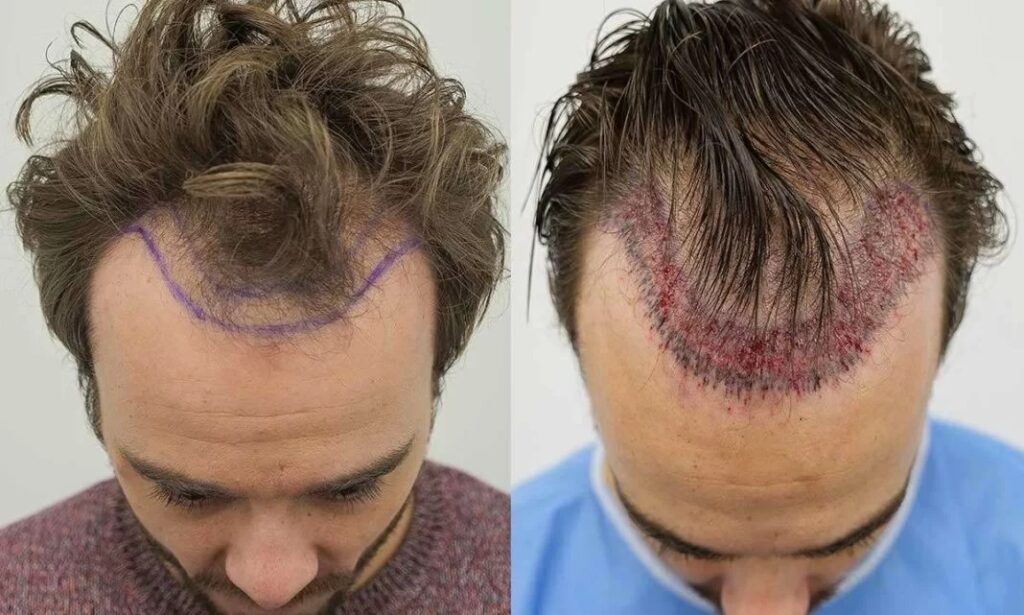Does Hair Transplant Provide The Permanent Results?

In light of increasing aesthetic considerations, hair transplant surgery has emerged as one of the most frequently discussed cosmetic surgical procedures. The predominant concern remains hair loss, which significantly impacts both social and professional quality of life. While genetics play a major role in hair loss, various other factors can also contribute to this issue. These include practices such as wet combing, chemical straightening, the use of heated styling tools, inadequate nutrition, as well as lifestyle choices like alcohol consumption, smoking, and certain medications, including antidepressants, anti-anxiety drugs, and antipsychotics. Consequently, individuals are actively seeking methods to prevent or mitigate hair loss. Numerous online resources provide information on medications, herbal remedies, and other treatments; however, it is unfortunate that no solution can effectively halt hair loss associated with pattern baldness. The only reliable approach to regaining hair is through hair transplantation or restoration procedures.
It is not uncommon to have concerns about the longevity of a hair transplant when contemplating the procedure. One may wonder if it is necessary to undergo hair transplantation every few years to maintain the results. Fortunately, a hair transplant performed by experienced and qualified professionals is designed to last a lifetime.
Hair follicles in the frontal and vertex areas are particularly vulnerable to damage due to their androgen sensitivity, which often leads to hair loss in these regions. In contrast, the occipital area is considered a reliable source for harvesting hair follicles, as it does not possess these androgen-sensitive receptors.
The genetic predisposition to hair loss resides in the hair follicles rather than the scalp itself. Therefore, the occipital region, located at the back and sides of the neck, serves as a safe donor site for hair transplant procedures. The principle behind this is that the characteristics of the hair follicles are determined by their original location rather than their new position on the scalp. Consequently, hair transplants provide a lasting solution for hair loss.
In cases of progressive hair loss, it may be required to conduct several sessions to transplant hair in areas experiencing continued hair loss. Nevertheless, the hair that was previously transplanted during the earlier session remains unaffected.
Hair transplant techniques
Graft harvesting represents a critical phase in hair transplant surgery and can be accomplished through two primary techniques:
- FUT (Follicular Unit Transplantation, commonly referred to as the strip method): This technique entails excising a strip of tissue from the donor area of the scalp, which is subsequently segmented into individual grafts. These individual follicular grafts are then carefully implanted, ensuring that the direction, arrangement, and alignment correspond to the characteristics of the recipient’s balding area.
- FUE (Follicular Unit Extraction): This approach involves the extraction of each hair follicle individually from the donor region of the scalp. The harvested grafts are then transplanted into the bald areas of the recipient’s scalp.
The selection of these methods was made after a thorough evaluation of their advantages and disadvantages. The parameters that influence the procedure for each patient include Norwood’s classification of hair loss severity, the patient’s age and sex, as well as the hair density in the donor area. To ensure optimal outcomes for the patients, it is imperative that the surgeon makes a comprehensive decision regarding the surgical approach.
Does hair transplant deliver permanent results?
- Certainly! The widespread appeal of this procedure can be attributed to its ability to deliver enduring, permanent outcomes. Hair follicles located in the frontal and vertex regions are sensitive to DHT, leading to their thinning or miniaturization due to hair loss. In contrast, the hair follicles situated in the occipital area (the back and sides of the head) are resistant to DHT and do not undergo hair loss, as they are not influenced by hormonal changes. The genetic characteristics of these follicles reside within the follicle itself rather than on the scalp, allowing them to be relocated to any area and remain viable for a lifetime.
While this procedure yields long-lasting results, it does not prevent the ongoing loss of existing natural hair. Consequently, since hair loss is a progressive condition, it may continue even after a hair transplant; however, it is highly unlikely that the transplanted hairs will be affected.
Dr. Suneet Soni, a highly regarded hair transplant surgeon in India with an MCh in Plastic Surgery, is renowned for delivering exceptional hair transplant results. He ranks among the leading specialists in hair transplant in Delhi. His surgical expertise, combined with a refined aesthetic sensibility, allows him to achieve results that are both enduring and natural in appearance. Dr. Soni has received accolades at various national and international conferences for his significant contributions to the field of hair transplantation and his research initiatives. Medispa Hair Transplant Clinic stands out not only as one of the most esteemed centers but also offers treatments at competitive prices for hair transplant cost in Delhi.
Is it possible that you could need another hair transplant?
The hair transplant procedure has undergone significant advancements, with modern techniques enabling outcomes that were previously unattainable. Currently, it is possible to achieve high-density hair growth in a single session, thereby minimizing the necessity for additional transplant sessions. When performed by skilled professionals, the transplanted hair is likely to remain for a lifetime. However, there are specific circumstances that may necessitate further transplant sessions, including:
- The progression of hair loss accompanied by ongoing shedding of existing hair.
- Extensive and advanced hair loss that cannot be effectively addressed in a single visit.
- The failure of the hair transplant due to the selection of an inadequately qualified clinic.
The foundation of a successful and lasting hair transplant lies in choosing the appropriate clinic and a qualified surgeon. Schedule your appointment today at Medispa Hair Transplant Clinic to receive the highest quality of hair transplant services.







